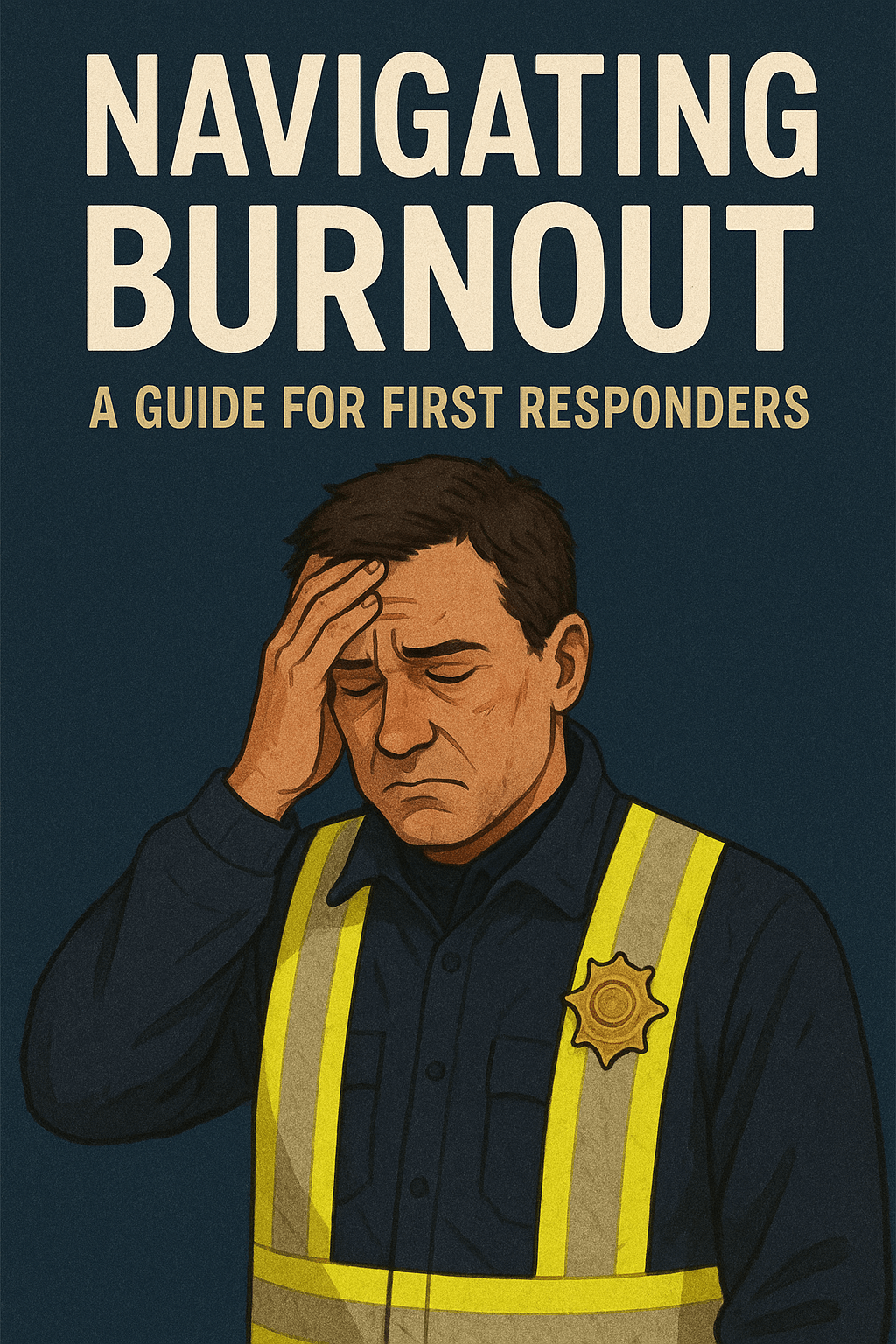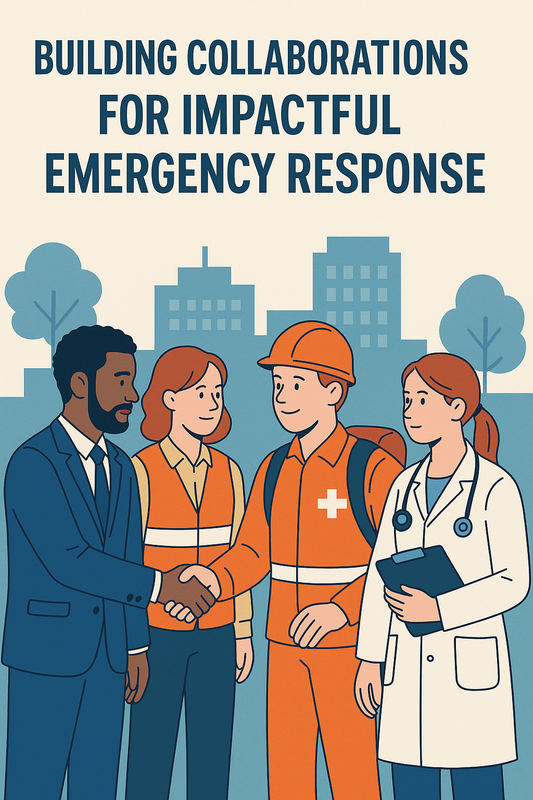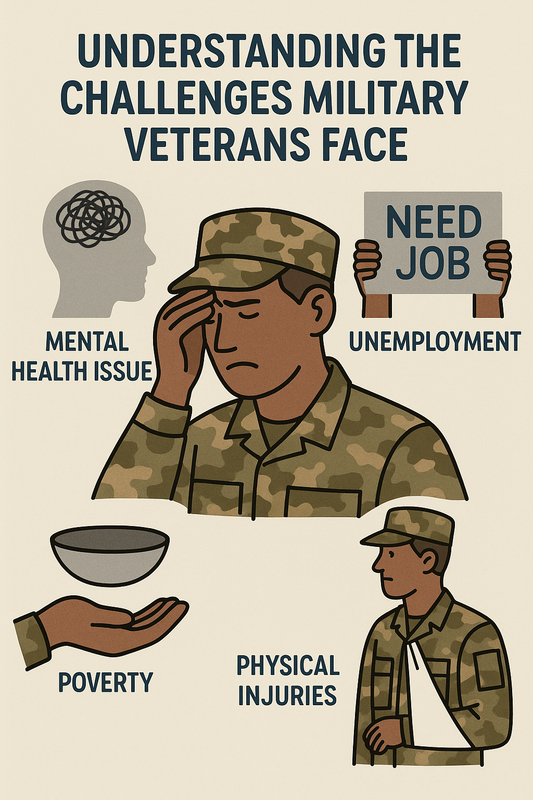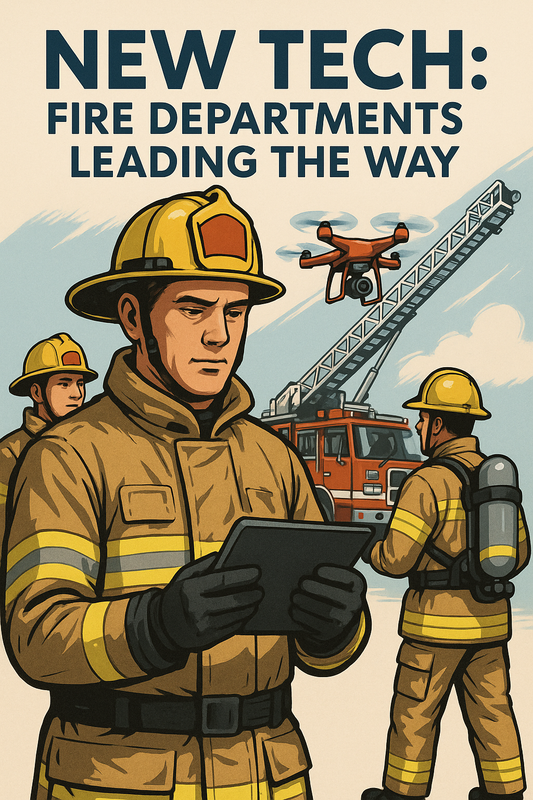
Navigating Burnout: A Guide for First Responders
Frequently Asked Questions
1. What is burnout in first responders?
2. What are the common signs of burnout among first responders?
3. What are some causes of burnout in first responders?
4. What coping strategies can first responders use to combat burnout?
5. How can communities support first responders dealing with burnout?
In today’s world, first responders face challenging and high-stress environments that can lead to significant burnout. This mental and physical exhaustion can not only affect their careers but also impact their personal lives. Understanding the challenges associated with burnout in first responders is essential to mitigate its effects and promote overall well-being.
The Reality of Burnout in First Responders
Burnout is a state of chronic stress that can manifest physically, mentally, and emotionally. It often arises from prolonged exposure to demanding situations, typical in professions such as law enforcement, firefighting, and emergency medical services. First responders continuously witness traumatic situations, which can lead to feelings of helplessness and emotional exhaustion.
Identifying the Signs of Burnout
Recognizing the signs of burnout is crucial for addressing the issue effectively. Here are some common indicators:
- Emotional Exhaustion: Feeling drained and unable to cope.
- Decreased Performance: Struggling to perform tasks that were once manageable.
- Irritability: Increased frustrations with colleagues or loved ones.
- Physical Symptoms: Headaches, sleep disturbances, or gastrointestinal issues.
- Detachment: Feeling disconnected from job responsibilities and relationships.
Causes of Burnout in First Responders
Several factors contribute to the high rates of burnout among first responders. Understanding these causes is the first step toward prevention and effective management.
High-Pressure Environments
The nature of first responder jobs often involves high-stakes situations that require quick thinking and immediate action. The constant exposure to emergencies can create an environment of perpetual stress, making it challenging to unwind after a shift.
Emotional Toll of Trauma
Witnessing traumatic events can take an incredible emotional toll. First responders often experience secondary trauma, a condition that can severely impact mental health and contribute to burnout.
Work-Life Balance Challenges
Maintaining a healthy work-life balance is crucial, yet it can be incredibly difficult for first responders. Irregular hours, night shifts, and being on-call often interfere with personal lives and relationships, exacerbating the feeling of burnout.
Coping Strategies for Burnout
Addressing burnout requires proactive measures and self-care strategies. Here are several effective methods for first responders to cope with and overcome burnout:
Develop Healthy Coping Mechanisms
It’s important to establish healthy coping mechanisms that can help manage stress. Consider the following practices:
- Exercise: Physical activity is a fantastic way to release endorphins and reduce stress.
- Meditation: Practicing mindfulness or meditation can help center emotions and reduce anxiety.
- Social Support: Engaging with friends, family, or colleagues can provide a crucial support network.
Seek Professional Help
Just as physical health should be prioritized, mental health should also be a primary focus. Seeking help from a qualified therapist or counselor experienced in trauma can provide effective strategies for coping.
Establish Boundaries
Implementing boundaries between work and personal life is vital. Setting limits on work commitments and making time for downtime can provide much-needed balance.
The Role of the Community
The community plays an essential role in supporting first responders. Here are ways communities can help mitigate burnout among these heroes:
Support Groups
Creating peer support groups allows first responders to connect with one another, share their experiences, and learn coping mechanisms in a safe environment.
Public Awareness Initiatives
Promoting public awareness about the mental health challenges faced by first responders can help reduce stigma and encourage open conversations about burnout.
Resource Availability
Communities should work to ensure that mental health resources are accessible to first responders, offering workshops, counseling services, and stress relief resources. Educating both the responders and the public can foster understanding and provide valuable support.
Why Mental Wellness Matters
Ensuring the mental wellness of first responders is not only crucial for their personal well-being but also affects public safety and service. A first responder who is mentally healthy is more equipped to handle the challenges of their job, leading to better outcomes when serving the community.
Creating a Supportive Work Environment
Work environments should prioritize mental wellness initiatives, providing training on stress management and resilience. By fostering a culture that values well-being, organizations can help prevent burnout before it becomes overwhelming.
Recognition and Appreciation
Recognizing and appreciating the efforts of first responders can significantly help boost morale. This can be as simple as thank-you notes or hosting community events to show gratitude, which can uplift the spirits of these individuals facing daily challenges.
The Power of Self-Care
Self-care is not selfish; it's a necessity. First responders should prioritize their self-care routines, which can include hobbies, relaxation techniques, or engaging in activities they enjoy. Whether it's spending time with family, pursuing sports, or even wearing a personalized husband t-shirt that honors their service, these small things contribute to overall happiness and well-being.
Implementing a Routine
Establishing a daily routine that incorporates self-care can be incredibly beneficial. Setting aside time for relaxation, hobbies, and connecting with loved ones creates a structured approach to balance life’s demands.
Every Little Bit Helps
Addressing burnout in first responders is an ongoing journey that requires collective action and personal dedication. It’s essential to remain vigilant about mental health, recognizing the signs of burnout and taking proactive measures to combat it. First responders possess incredible strength and resilience; nurturing their well-being is crucial for them to continue serving their communities effectively.
By understanding the challenges of burnout, implementing coping strategies, and fostering a supportive environment, we can help first responders thrive and find fulfillment both on and off the job. Remember, it’s not just about survival; it’s about creating a life filled with joy, purpose, and connection.
Visit the Shopify or Wix store of a fellow user by following this link to their store. Please note that this is a promotional link, and we are not responsible for the content of the linked store.




